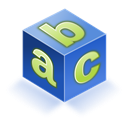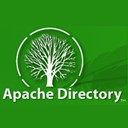Uncovering the Best GLAuth Alternatives for Centralized Authentication
GLAuth (Go-lang LDAP Authentication) is a lightweight, secure, and configurable LDAP server praised for its ability to centrally manage accounts, SSH keys, Linux users, and passwords across diverse infrastructure. It serves as an excellent alternative to more complex solutions like OpenLDAP and Active Directory, particularly for development environments or homelabs. However, depending on your specific needs for scalability, features, or platform compatibility, you might be seeking a GLAuth alternative. This article explores several top contenders that can provide similar or extended functionalities for your centralized authentication requirements.
Top GLAuth Alternatives
While GLAuth excels in its niche, a variety of other solutions offer robust features for directory services, identity management, and centralized authentication. From full-fledged enterprise solutions to more specialized open-source projects, there's likely a perfect fit for your setup.

Univention Corporate Server
Univention Corporate Server (UCS) is an open-source, free platform designed for efficiently operating and managing server applications and complete IT infrastructures. Based on Debian, it offers robust features like Active Directory authentication, DHCP and DNS management, Single Sign-On, Kerberos, LDAP Services, Multi-Factor Authentication (MFA), and support for Docker. UCS is a powerful GLAuth alternative for users needing a comprehensive, enterprise-grade solution that integrates seamlessly with both Linux and Windows environments.

OpenLDAP
OpenLDAP Software is a widely recognized, free, and open-source implementation of the Lightweight Directory Access Protocol. Available for Mac, Linux, and BSD, it includes the stand-alone LDAP daemon (slapd). As a foundational LDAP server, OpenLDAP is a classic GLAuth alternative for those who prefer a highly configurable and widely adopted solution, albeit one that may require more manual setup compared to GLAuth's simpler approach.

FreeIPA
FreeIPA is an integrated security information management solution built on Linux (Fedora), combining 389 Directory Server, MIT Kerberos, NTP, DNS, and Dogtag (Certificate System). This free and open-source platform provides comprehensive identity and access management for Linux environments. FreeIPA serves as a robust GLAuth alternative for users requiring a complete package for centralized identity, authentication, and policy management, especially within a Linux-centric infrastructure.

Microsoft Active Directory
Microsoft Active Directory is a commercial, hierarchical database primarily used on Windows platforms for managing network resources, users, and computers. It's a comprehensive directory service that provides centralized authentication and authorization for Windows-based networks. While GLAuth is a lightweight alternative for Linux and cross-platform needs, Active Directory is the go-to solution for larger organizations deeply embedded in the Microsoft ecosystem, offering a much broader suite of features.

389 Directory Server
The 389 Directory Server is an enterprise-class, open-source Linux LDAP server, known for its robustness, full-featured capabilities, and support for multi-master replication. Available for free on Linux, CentOS, and Fedora, it's a hardened solution from real-world use. As a GLAuth alternative, 389 Directory Server provides a more feature-rich and scalable LDAP server experience, suitable for larger deployments that might outgrow GLAuth's simplicity.

OpenDJ
OpenDJ is a directory server that implements a wide range of Lightweight Directory Access Protocol and related standards, including full compliance with LDAPv3. It's a free and open-source solution available for Windows, Linux, and self-hosted environments, written in Java. OpenDJ serves as a versatile GLAuth alternative, particularly for those who prefer a Java-based solution with extensive LDAP capabilities and flexibility in deployment.

RazDC
RazDC is an open-source, self-hosted Active Directory replacement built on CentOS and Samba4. It includes support for Directory, DNS, DHCP, and NTP type services, offering MS-compatible features. For those seeking a free and open-source GLAuth alternative that provides a near-native Active Directory experience on Linux, RazDC is an excellent choice for a homelab or small to medium-sized business environment.

ApacheDS
ApacheDS™ is an extensible and embeddable directory server entirely written in Java, certified LDAPv3 compatible by the Open Group. It's a free and open-source solution available across Mac, Windows, and Linux. As a GLAuth alternative, ApacheDS is ideal for developers or organizations looking for an embeddable, standards-compliant directory server that can be integrated into various Java applications, offering flexibility beyond a standalone server.
The best GLAuth alternative for you will depend on your specific environment, scale, feature requirements, and comfort with different technologies. Whether you need a full-fledged enterprise directory, a highly customizable open-source LDAP server, or an Active Directory compatible solution, this list provides a strong starting point for exploring your options. Evaluate each based on your needs for centralized account management, platform compatibility, and desired feature set to find your ideal fit.